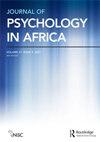大学员工离职意向:工作倦怠与心理社会氛围的预测作用
IF 0.8
4区 心理学
Q3 PSYCHOLOGY, MULTIDISCIPLINARY
引用次数: 0
摘要
本研究旨在探讨工作倦怠与心理社会环境对离职意向的影响程度。这项横断面调查抽样了1222名加纳大学雇员(女性= 37.1%;年龄介乎18至60岁以上;平均工作年限= 5年,SD = 3.1年)。员工完成了需求-控制-支持、工作倦怠、长期工作歧视与骚扰、离职意向测量。运用结构方程模型(SEM),结果表明工作需求、工作决策纬度和骚扰等工作因素对离职倾向具有预测作用。人格解体和个人成就感降低对员工离职倾向有显著影响,但情绪耗竭对员工离职倾向无显著影响。男女学术和非学术雇员报告的工作因素和个人因素水平均显著较高,离职意愿水平中等。大学管理部门有必要创建一个工作场所氛围团队,以支持员工履行自己的职责。本文章由计算机程序翻译,如有差异,请以英文原文为准。
Employee turnover intention: The predictive role of work-related burnout and psychosocial climate among university workers
This study aimed to investigate the extent to which work-related burnout and psychosocial environment predicted intention to leave employment. This cross-sectional survey sampled 1 222 Ghanaian university employees (females = 37.1%; age range = 18 to above 60 years; mean years of work experience = 5 years, SD = 3.1 years). The employees completed Demand-Control-Support, Work Burnout, Chronic Work Discrimination and Harassment, and Turnover Intention Measures. Using structural equation modelling (SEM), results indicate that work factors like job demand, job decision latitude and harassment predict turnover intention. Personal factors of depersonalisation and diminished personal accomplishment (but not emotional exhaustion) significantly influenced the turnover intention of the workers. Both female and male academic and non-academic employees reported experiencing significantly higher levels of work factors and personal factors and a moderate level of turnover intention. There is a need for university administration to create a workplace climate team to support employees in performing their roles.
求助全文
通过发布文献求助,成功后即可免费获取论文全文。
去求助
来源期刊

Journal of Psychology in Africa
PSYCHOLOGY, MULTIDISCIPLINARY-
CiteScore
1.70
自引率
16.70%
发文量
62
期刊介绍:
Findings from psychological research in Africa and related regions needs a forum for better dissemination and utilisation in the context of development. Special emphasis is placed on the consideration of African, African-American, Asian, Caribbean, and Hispanic-Latino realities and problems. Contributions should attempt a synthesis of emic and etic methodologies and applications. The Journal of Psychology in Africa includes original articles, review articles, book reviews, commentaries, special issues, case analyses, reports and announcements.
 求助内容:
求助内容: 应助结果提醒方式:
应助结果提醒方式:


